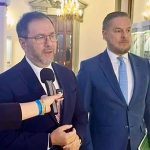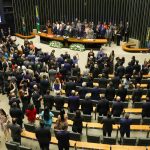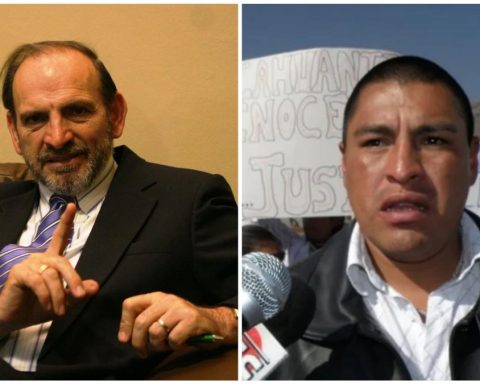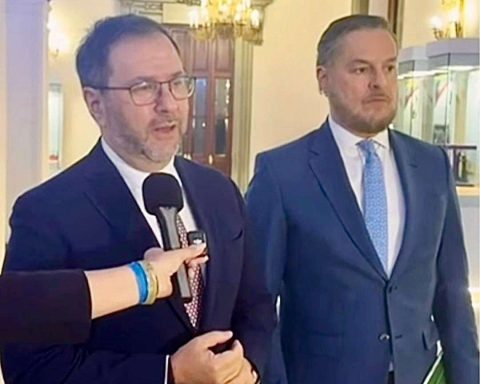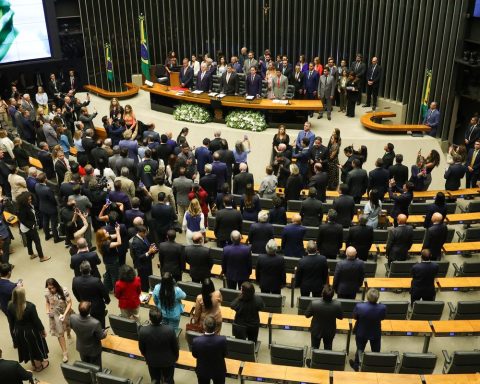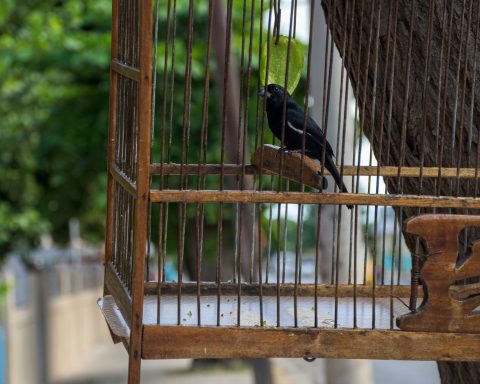Last Friday, October 14, was a difficult date for Comunes. That day 171 militants abandoned the ship of one of the central parties of Approve Dignidad, and which has parliamentary representation in the Lower House through the deputies Emilia Schneider, Camila Rojas and Claudia Mix.
In the letter of resignation they pointed to a disconnection of the community with its social bases that would not have allowed them to propose “a clear route” to the Government, with a focus on popular demands. “Did we not say: never again without the people?” they wrote.
In a response statement, the Comunes directive, chaired by Marco Velarde, claimed to seek as a party to be “a useful tool for change” within the Government.
Within the outgoing group, who were mostly people far from representative positions, that is, more grassroots militants – with the exception of the mayor of Macul, Gonzalo Montoya – and some close to one of the movements that joined for the creation of Comunes, Citizen Power, criticized in private that this leadership prioritized “being a force in the government’s management”, which would have taken away the autonomy of the party in the ability to criticize.
-How did the departure of the 171 militants affect the party?
-I want to de-dramatize that we can coexist in different political projects. We can contribute to the transformation of the country from different paths.
– Do you think that the leadership has distanced itself from the grassroots militants?
-I do not agree with the inconvenience about our distance from the bases. We make an effort to listen to the different territories, we have a continuous relationship with the regional ones, who actively participate in the destinies of the party and who have had the opportunity to participate in the Government.
In these criticisms I see opportunism from a group that did not carve out a space for itself in the party, that made ethical and probity mistakes, that did not reflect on the facts that led us to a major political crisis.
-So you think that the majority of the outgoing militants were politically close to the candidate for regional governor, Karina Oliva?
-It is a group that is close to that former group of militants of Poder Ciudadano, although they are not all those who come from Poder Ciudadano, to clarify. I think it’s good that they have their own political project.
-It has been circulated in the press that Daniel Jadue could be approaching the lot that came out of Comunes. Are the doors in the community open for him?
-Mayor Daniel Jadue has taken a path that has not been constructive for the forces of change that we are leading the Government today. This has no place in a party like Comunes, which acts responsibly with the current political moment. Although we are not obsequious with the Government, and we raise our criticisms, we have a democratic responsibility with stability and a commitment to the President and we are not going to hit him for free.
Conclave at Cerro Castillo
It was announced that on Wednesday, October 26, a conclave of the ruling forces will be held at the Palacio de Cerro Castillo, in Viña del Mar. During the extended political committee held on Monday, October 17, in La Moneda, it was discussed that it would be of a meeting of reflection after the electoral defeat of September 4 and where the next six months of Government will be projected.
-What do you think are the specific points that Commons should take as emergencies for the next 6 months of Government?
-There should be a reflection on what has been the first period of Government, its installation and how the program has been developed. You must have a vision of what the results of September 4 meant for Approve Dignity and Democratic Socialism. And how will we swim in this adverse scenario in which the right wing wants to boycott the government program, which we are not going to give up?
One of the objectives will be to find ways to deepen our program, whether it be approving tax and pension reforms, but also reaching citizens more effectively with concrete and material solutions that improve their living conditions.
constituent design
“We are open to conversation, to see what the technical and political foundations of Chile are. Let’s go about why it would be a mixed body, but I am not sure if we are going to give in to that,” acknowledged the president of the Party for Democracy (PPD). ), Natalia Piergentili, prior to the meeting this Monday, October 17 to continue with the negotiations in order to design a new constituent process.
In this regard, within Approve Dignidad, members assure that the opening of representatives of Democratic Socialism to the fact that the body is not 100% elected and, instead, is made up of experts appointed by parties, made it uncomfortable. Internally, they point out that it was not the time to do it, since they were waiting for Chile Vamos to open up the mechanism on the constituent body that it will promote.
-What do you think about opening the door to a mixed body and not elected 100% by the citizens?
-The ruling party, in a document that it has already presented, agreed to have a 100% elected body, and we should defend these positions in the negotiations. Personal outlets do not help in a context in which we are in a negotiation and in which the right is going to occupy every word. I would expect greater order from all the political actors of the ruling party.
-How would the experts influence the emergence of initiatives that point to a more general framework, as the President has proposed, and less identitarian, if they do not have the right to vote?
-There is a general consensus among the political forces that experts should have a greater role in the constitutional process, but without the power to deliberate, because those who have that task are going to be the ones who were elected for this.
What has been discussed is that they can collaborate with the drafting of the regulations, prepare technical reports, be present at the sessions and support the debate so that it can be better understood. We cannot have an organ that closes in on itself as the previous process did.
Presidency of Karol Cariola in danger
This Friday, October 21, the current president of the Chamber of Deputies, Raúl Soto (PPD), must present his resignation from office. On November 7, the Chamber will be able to vote for the new president.
What will happen that day is not clear, since some signatories of the March 10 agreement – which established six-month rotating presidencies for the Lower House and which sought to achieve the landing of Karol Cariola (PC) in the front – have shown resistance to support the communist deputy, for the role she played as spokesperson for the Approval, an option defeated at the polls on September 4.
-What is the risk for the continuity of the government program if both chambers are presided over by the right?
-It can be problematic, because there is a current framework where the right seeks to stop the government program. He is capriciously reading the results of the plebiscite, because they believe that it is a vote that corresponds to them.
It is urgent that we be able to move forward with the tax and pension reforms, and that could be at risk if the administrative agreement is called into question and the right wants to be in the presidency of the House and the Senate.
-What do you think explains the advance of the right within Congress? For example, in terms of negotiations with parties such as the Partido de la Gente (PDG).
-The right is having a very arrogant attitude after the results of the plebiscite. She can blow up in your face. We hope that, due to the social and political context in which we find ourselves, we can have a much more beneficial democratic discussion for citizens.
Personally, I am concerned about the advance of an extreme right that is willing to bypass democratic channels. We have seen how actors like those of Pancho Malo (Francisco Muñoz) want to boycott democratic processes, even not wanting to have a new constitutional process. The advance of populism worries me.
I would expect Chile Vamos to present democratic credentials, which I think it has in some sectors, in order to advance in social emergencies.
-Is it similar to what you experienced as a coalition prior to the electoral debacle of September 4?
-We had an apprenticeship on September 4, after the years in which we had been winning. After the results of the 2020 plebiscite, the conventional election and the presidential election, we felt like winners. The citizens had supported us, but it is not good to take that confidence, because the citizens are constantly judging us. And, above all, judging how we are able to deal with the daily problems they are facing.
One can have very fair demands, but if the citizens see that their material living conditions are currently being diminished, they do not have to support you.









